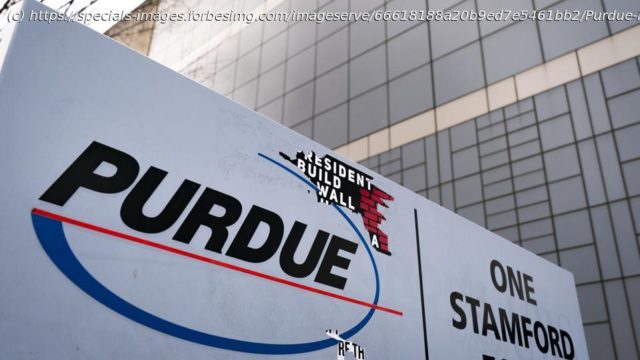The federal government challenged the $6 billion settlement in court, even though victims of the opioid crisis said they wanted it to go through.
Topline
Purdue Pharma and the governments and victims suing them for their role in the opioid crisis aren’t done with their court proceedings just yet, as the Supreme Court struck down Thursday the company’s bankruptcy settlement that shielded members of the Sackler family from lawsuits—despite the victims telling the court they didn’t agree with the challenge.Key Facts
The federal government asked the Supreme Court to weigh in on Purdue Pharma’s bankruptcy settlement, first reached in 2022 and held up in an appeals court, which allows members of the Sackler family to pay $6 billion to governments, institutions and individuals suing them for their role in the opioid crisis, and in return shields them from civil liability going forward.
The court ruled 5-4 to reverse the court’s ruling that upheld the settlement, ruling the terms of the settlement that release the Sacklers from liability are not lawful under the bankruptcy code.
“Nothing in present law authorizes the Sackler discharge,” Justice Neil Gorsuch wrote in his opinion for the court’s majority, though he noted their decision is a “narrow” one that shouldn’t impact other bankruptcy plans.
As the manufacturer of opioid OxyContin, Purdue Pharma has come under widespread criticism for its role in causing and perpetuating the opioid epidemic, leading to thousands of lawsuits against the company and members of the Sackler family, who previously presided over the company.
In a dissenting opinion, Justice Brett Kavanaugh chided the court, writing its decision “is wrong on the law and devastating for more than 100,000 opioid victims and their families.”
The court’s ruling did not break down along ideological lines: left-leaning Justice Ketanji Brown Jackson joined Gorsuch and other right-leaning Justices Clarence Thomas, Samuel Alito and Amy Coney Barrett, while left-leaning Sonia Sotomayor and Elena Kagan joined Kavanaugh and Chief Justice John Roberts in dissenting.






